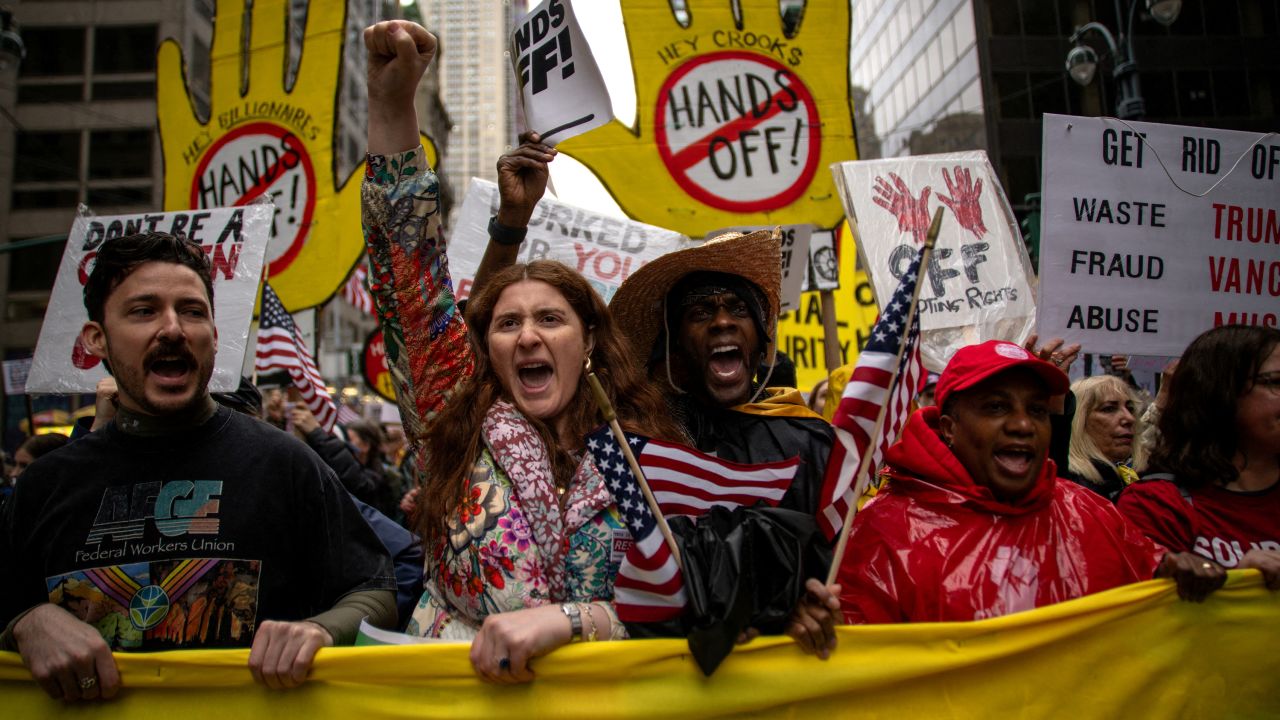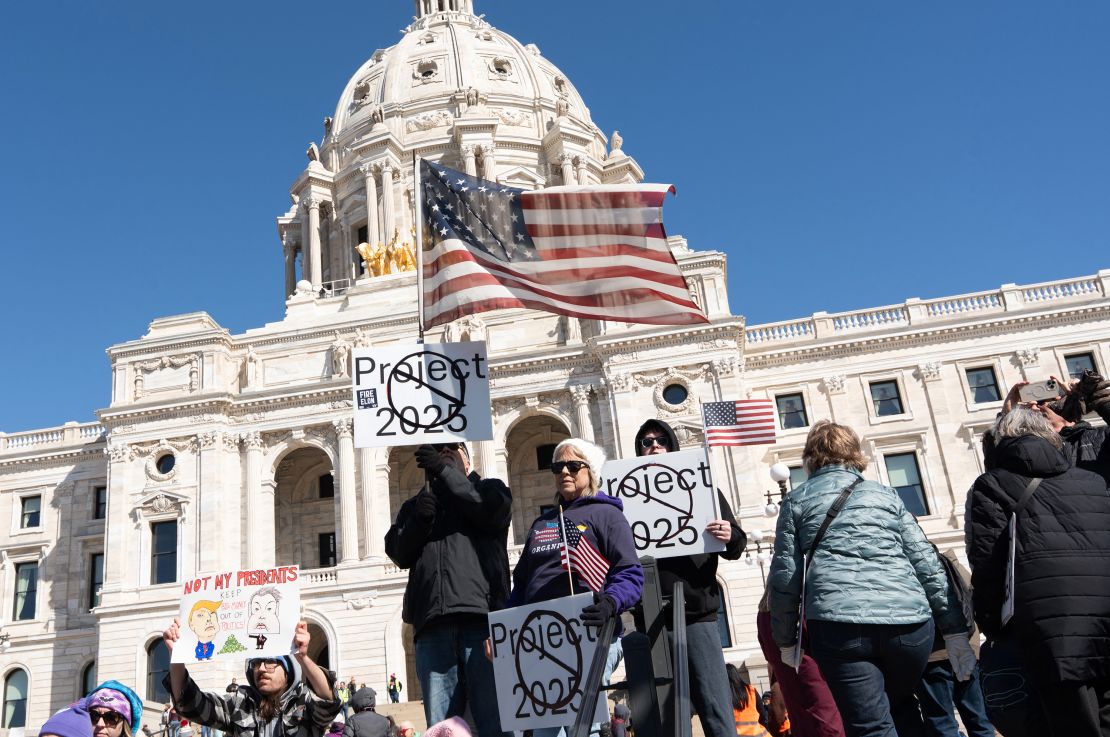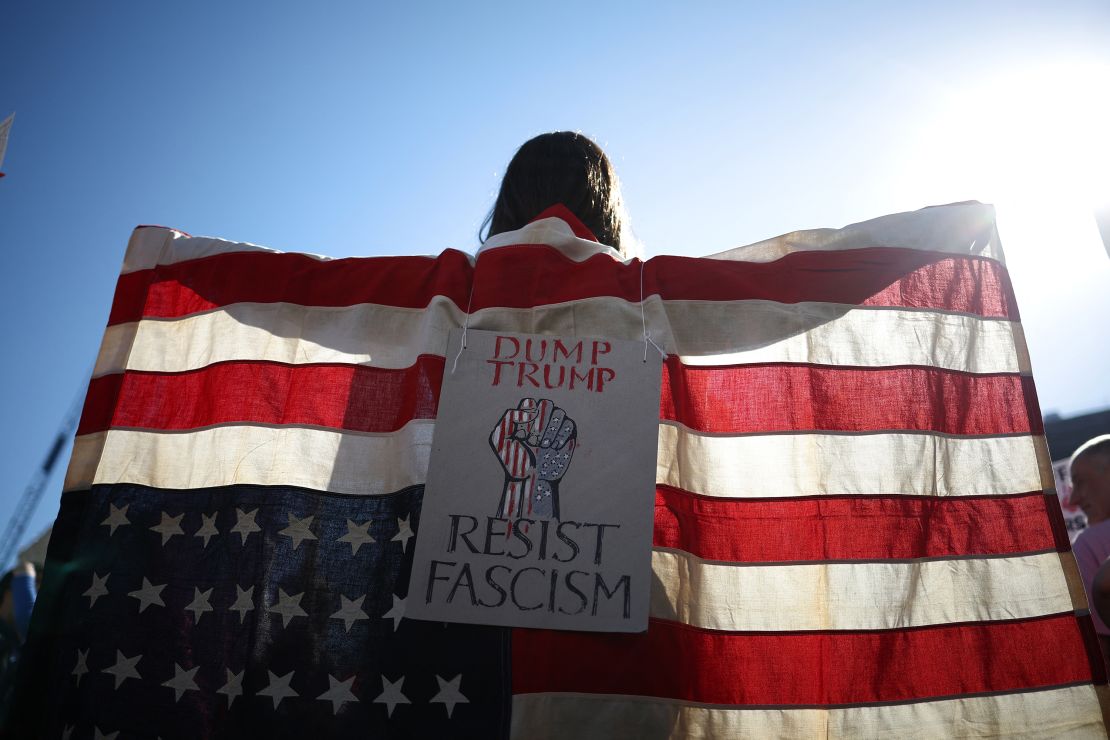America’s Brightest Minds Will Walk Away

By Neel V. Patel
Mr. Patel is a staff editor in Opinion who covers science.
"America is at risk of losing a generation of scientists. Amid sweeping cuts to federal research funding by the Trump administration, job opportunities for young scientists are being rescinded, postdoctoral positions eliminated and fellowships folded as labs struggle to afford new researchers. As countless scientific projects come to a halt, the researchers who will suffer the most are those just beginning their careers. Times Opinion has heard from more than 100 readers who have shared stories of how they’ve been affected.
Kristen Gram is a 22-year-old graduate student researching the type of materials and hardware that might one day help reduce the enormous amount of energy new computer processing technologies use to function. Her adviser recently warned her that federal funding cuts made it unlikely she’d secure a fellowship she needed to finish her degree.
Melanie Reuter is a 29-year-old graduate student whose work focuses on how the gut microbiome shapes human health and chronic diseases like Type 2 diabetes. She wants to find more effective ways to treat diseases, with fewer side effects. She hoped to secure federal funding to cover her education and provide a livable stipend so she could concentrate on her research. But her application for a National Institutes of Health grant meant to support diverse candidates was pulled, without explanation, in February, just days before it was scheduled for review.
Francesca Walsh, 28, is in the last six months of earning her Ph.D. in neuroscience and behavior. She wants to study how the brain functions when making economic decisions, in an effort to protect economic markets and consumers from financial harm. The postdoctoral jobs she planned to apply for have suddenly disappeared. “I felt the door of an entire sector of jobs, including federal research jobs, slam overnight,” she said. “It’s very disheartening, and sometimes I wish I just became an accountant.”
Most American scientists understood a second Trump term was unlikely to be friendly to their kind, but few anticipated such a rapid bulldozing. The N.I.H. — the largest public funder of biomedical and behavioral research in the world — announced it would slash funding to universities for overhead, or indirect, costs, which often covers laboratories’ operational needs. Though legal challenges have stalled enforcement, federal grant money remains withheld in many cases. Elon Musk’s so-called Department of Government Efficiency team has also turned its hatchet on the N.I.H. The agency has lost nearly one-fourth of its 18,000 employees because of job cuts, buyouts and some employees’ choosing early retirement, according to reporting by NPR.
Many research grants overseen by the N.I.H., the National Science Foundation, the Department of Agriculture, the Department of Energy, the Department of Veterans Affairs and other agencies are frozen or canceled. When federal money for scientific research disappears, so do the university labs that young scientists rely on as steppingstones of essential training and experience they can later apply toward projects of their own.
Those actions could mean America’s demise as the most powerful force for innovation in science, health and technology for the 21st century. Competitors like China will be able to usurp that position, and other countries are already making concerted efforts to recruit American scientists.
Many young researchers say they are having to choose between staying in the United States and staying in science. America shouldn’t take scientific progress in medicine, artificial intelligence, energy and more for granted. If the youngest, brightest minds aren’t soon reassured that the United States can support their work — and that scientific inquiry will be protected from political interference — they will walk away.
***
American science has been a beacon for aspiring researchers since the end of World War II, when a rivalry with the Soviet Union spurred the United States to make huge investments in science and technology research and recruit the most brilliant thinkers from abroad. Scientists saw the United States as a kind of nationwide laboratory for pursuing work under the best conditions possible — a remarkable combination of positive pressure and competition that pushed them to their best work, paired with support that provided the time, space and resources needed to realize that work’s full potential.
This American brain trust has resulted in over 400 Nobel laureates, more than any other country in the world. As of 2023, an estimated 1.2 million people around the world held a Ph.D. in science, engineering or health earned at an American institution. The United States accounts for 27 percent of the world’s total research and development activity — the most of any nation — though China, at 22 percent, is closing in. This is still far ahead of the next largest players: Japan (7 percent), Germany (6 percent) and South Korea (4 percent).
This investment has been essential to our economy. More than 408,000 jobs are supported by N.I.H. grants. It’s estimated that every dollar of N.I.H. funding produces $2.56 in economic activity.
So much of that success is due to the U.S. government’s willingness to support the kind of basic science work that takes years, even generations, before resulting in monumental breakthroughs. Hundreds of millions of federal dollars established the groundwork for key breakthroughs in mRNA technology before the Covid-19 pandemic, which helped set up Operation Warp Speed for success. Ozempic and other GLP-1 drugs were inspired in part by N.I.H.-supported research into Gila monster venom in the 1980s; without that work, we might not have had the current weight-loss revolution. Fifty years ago, fewer than 60 percent of children diagnosed with pediatric cancer survived after five years. Now, thanks to treatments funded and spearheaded by the N.I.H., that survival rate is 85 percent.
America had also been an attractive destination for science because of its express support for free inquiry — the ability of researchers to study what mattered most to them, even if there wasn’t a straight path to success and profit. That commitment appears to be crumbling. “I mourn a world in which science must defend itself through its end products, rather than its underlying search for truth and beauty,” said Daniel Bauman, a 25-year-old Stanford University graduate student studying evolution. “When efficiency is mandated, current and future careers are lost or abandoned. If science funding is made contingent on immediately beneficial results, who will be left to tell the story of nature? Will anyone even be listening?”
Young scientists’ careers are inextricably tied to the grant application cycle. Carole LaBonne, a molecular biologist at Northwestern University, recently told the podcast “Odd Lots” to think of labs as small businesses that run on very tight operating margins. A grant that provides funding for, say, four years would need to be renewed in the third year. And if they can’t do that, people must be let go quickly — which almost always means junior members of the lab. Peter Jacobs, a senior scientist at Lawrence Berkeley National Laboratory, is unsure whether Department of Energy and National Science Foundation grants that help fund his program will be renewed; he’s not certain he can keep on his three postdocs, all of whom are already looking at other positions, including in Europe or Asia.
It’s already hard enough to establish oneself as a young scientist. The average age for researchers to receive a first N.I.H. grant has increased since 1995 and is now over 40 years. Those from disadvantaged backgrounds will find it especially challenging to make a career in science work, now that grants meant to help them are being dissolved.
At Fort Lewis College in Colorado, where nearly 40 percent of the student population identifies as Native American, one researcher said he and his colleagues were told not to bother submitting a renewal application for an N.I.H.-associated grant that funds increased representation in the biomedical sciences and that has helped at least a dozen Native Americans earn Ph.D.s in the past 15 years. The Frist Center for Autism and Innovation at Vanderbilt University was expecting $7 million in National Science Foundation funding meant to train scientists and engineers with autism, but those awards have been rejected or are in limbo. “It is heartbreaking having to tell these students — who have persisted through challenges throughout their lives for the opportunity to apply their talents for their own careers but also for their country — that they aren’t so valued after all,” said Keivan Stassun, an astrophysics professor and the center’s founding director.
***
“I grow ever more skeptical of a bright future for young scientists,” said Patrick Payne, 28, a data scientist at the University of Vermont’s Larner College of Medicine. He recently decided to forgo pursuing an M.D. and a Ph.D. in favor of pursuing a medical degree exclusively. “This loss of a generation and of diversity makes me question research funding overall and has pushed me away from pursuing a permanent career in research.”
Of 1,200 U.S. scientists who responded to a poll conducted by the journal Nature, 75 percent said they were considering leaving the country. Countries like France, China and the Netherlands are courting them. Those who are already abroad are considering staying there, like Atticus Cummings, a 24-year-old graduate student in Barcelona who is exploring how to make buildings out of carbon-reducing materials. He’d prefer to return to the United States and build sustainable, affordable housing in his home state, Montana, but wonders if that will be feasible by the time he graduates. “My heart is in the mountains at home,” he said.
The Trump administration is squandering what was a real opportunity to improve the system around federally funded science. Critics have long suggested that some labs, particularly at very prestigious institutions, are awarded too much funding that could go elsewhere and that the process behind grant applications and approvals could use more streamlining and scrutiny. But the bulldozer approach of the past several weeks means people are hatching escape plans. Unfreezing the grant process and presenting a more thoughtful plan for improving federal funding for science may assuage young people’s fears that their lives are about to be upended permanently.
Early-career scientists cannot simply migrate to the private sector. Many scientists who work at private labs got their start in academic ones, often supported by federal grants. Private donors are highly unlikely to make up the funding shortfall caused by cuts to federal grants, and the private sector isn’t designed to completely support the kind of basic research that provides young scientists with essential education and training.
***
A lot of people perceive scientific research as prestigious — the smartest minds working under pristine conditions with seemingly limitless resources. In reality, it’s grueling work fueled almost entirely by devotion.
When I spent a semester working as an undergraduate researcher in an immunology lab at Virginia Tech, I watched the graduate students and postdocs I worked alongside spend up to 70 hours a week toiling on projects. They spent most of the day on their feet, paying meticulous attention to their experiments and trudging from one time-consuming task to another — calibrating delicate instruments to measure faint traces of chemicals, setting up and running bacteria culture experiments governed by rigid safety protocols, cleaning supplies and lugging heavy equipment from location to location, preparing reagents the entire lab needed, analyzing data and simply keeping the laboratory clean and organized.
Experiments run into obstacles and failure all the time, and researchers must devote weeks, months or even years trying to troubleshoot what went wrong so they can move to the next step. They build resilience not just against seemingly constant discouragements but also against the pressure testing of their ideas by mentors, peers and outside scientists. Success sometimes feels hardly more likely than winning the lottery.
That’s why Mike Gallagher, who has worked as a research scientist for 17 years, compares the work to a blue-collar job. “You roll up your sleeves, try to make or discover something useful and then let the scientific community try to punch holes in your work to make sure that it’s sound,” he said. Young scientists stick it out because they believe deep down that the work they’re doing could make a material difference in the real world if they’re allowed to see it all the way through. And that impulse can be nurtured when they have leadership and processes that provide encouragement in spite of setbacks.
“Being an early-career academic scientist does not pay very much, requires a very tough-minded attitude and generally is only worth it for people if they truly just love doing science to better understand the world and improve the quality of life for all people,” said Mr. Gallagher. In mid-February, he traveled to interview for a dream position as a tenure-tracked faculty member at a university where he’d get to lead a lab dedicated to understanding Alzheimer’s disease. When he returned home, however, he learned that amid the current funding turmoil, the hiring process had been put on hold.
I couldn’t cut it as a researcher. And that’s precisely what the system is meant to do — weed out the individuals who don’t have the motivation to meet the challenges and keep competing with others. Young scientists are driven by a passion to imagine what is possible, by dreams of turning very idiosyncratic obsessions into something that stands some glimmer of a chance to change the world or, at the very least, contributes to that goal.
Though that passion has been fractured, it still lives in America’s young scientists. They want to imagine a better world, and they want to pursue that dream here in the United States. If the country’s leadership continues with its plans, however, we will see the brightest minds of the next generation disappear with their dreams."




